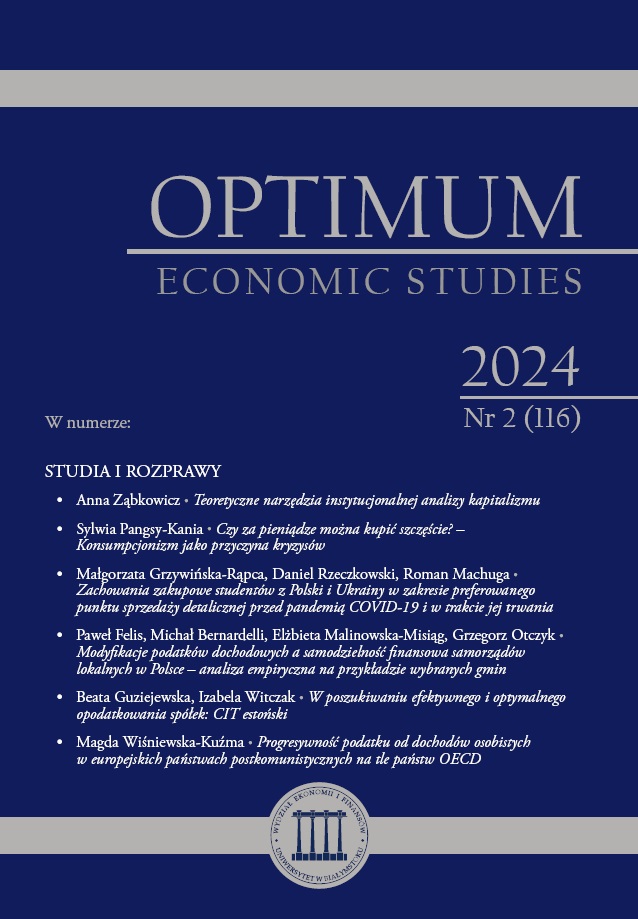W POSZUKIWANIU EFEKTYWNEGO I OPTYMALNEGO OPODATKOWANIA SPÓŁEK: CIT ESTOŃSKI
SEEKING AN EFFECTIVE AND OPTIMAL REGIME OF CORPORATE TAXATION:THE ESTONIAN CIT
Author(s): Beata GuziejewskaSubject(s): Economy, Public Finances, Fiscal Politics / Budgeting, Socio-Economic Research
Published by: Wydawnictwo Uniwersytetu w Białymstoku
Keywords: taxes; tax efficiency; taxation of companies; Estonian CIT
Summary/Abstract: Purpose – The study provides a multidimensional assessment of the Estonian CIT regime and its ability to promote investments in Poland. The key feature of the Estonian CIT as an alternative to ‘traditional’ CIT is that taxpayers who withhold corporate profits to invest or strengthen reserves are not required to pay it on an ongoing basis. The Estonian CIT involves fewer obligations for taxpayers, but companies must meet special conditions to be eligible for it. Research method – The study uses a qualitative research methodology. Its main elements are a critical analysis of legislative acts, a review of tax literature, and a process of deduction. Conclusions are drawn based on existing tax theory studies and an analysis of relevant laws and their preliminary effects. Results – The Estonian CIT regime offers numerous benefits to companies. Most of its advantages arise from the amended corporate income tax act, which introduced numerous modifications to the Estonian CIT and clarified its rules. In 2022, almost 7500 companies chose this form of taxation, as it was found to better address corporate needs. Although the Estonian CIT has not been in place long enough to determine if it can significantly accelerate the rate of investment, because of the large number of restrictions, requirements, and complicated tax rules it involves, its role as an investment leverage for the Polish economy is questionable. Originality / value / implications / recommendations – The study explores the use of taxes in an economy under globalisation, as well as deglobalisation. In the latter case, after the crisis caused by the pandemic and war in Ukraine, an economic policy using the tax system will become necessary.
Journal: Optimum. Economic Studies
- Issue Year: 116/2024
- Issue No: 2
- Page Range: 96-114
- Page Count: 19
- Language: Polish

